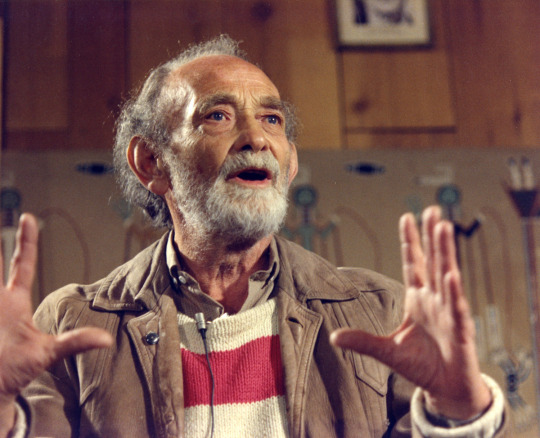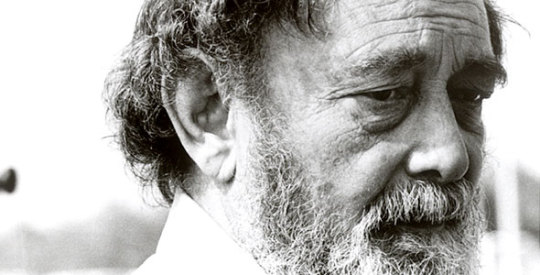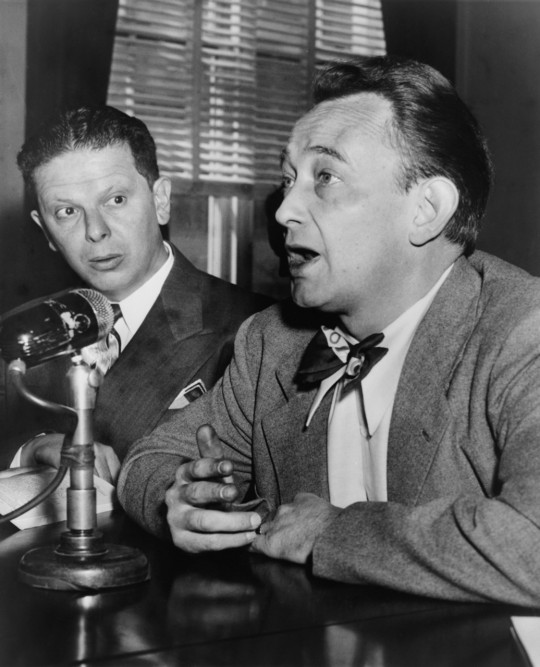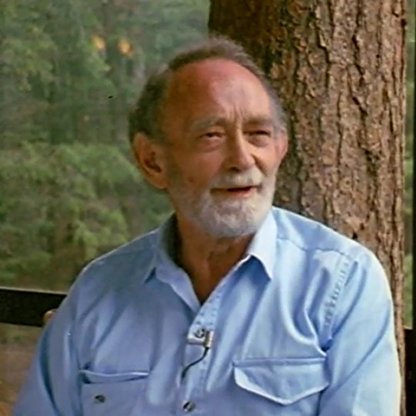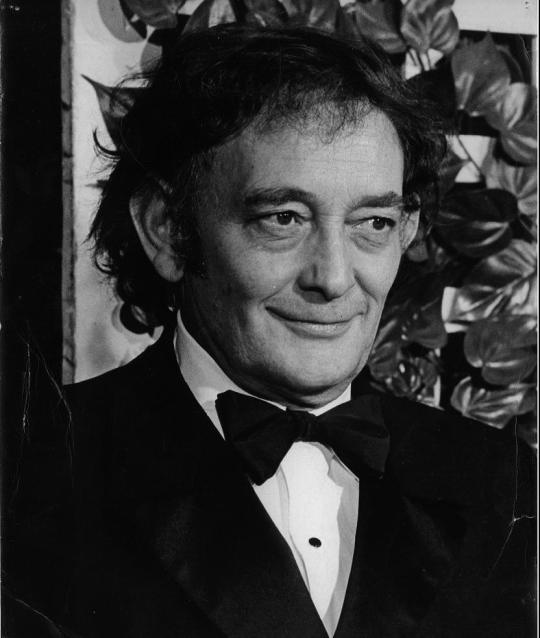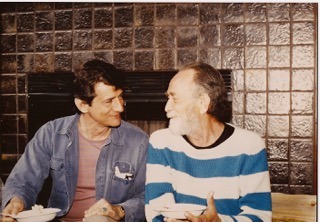#waldo salt
Text

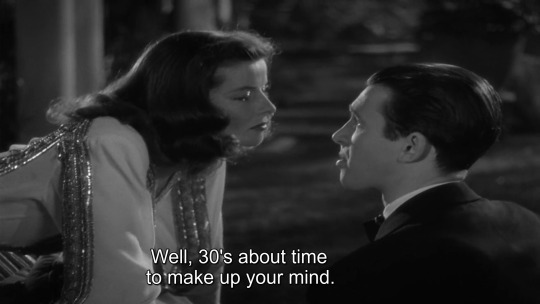
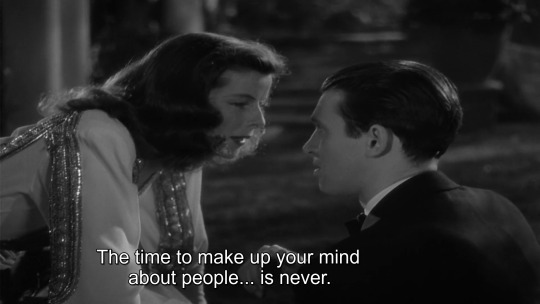
The Philadelphia story, 1940
#comedy#romance#the philadelphia story#george cukor#donald ogden stewart#philip barry#waldo salt#katharine hepburn#james stewart#grow
10 notes
·
View notes
Text
Top two vote-getters will move on to the next round. See pinned post for all groups!
#best best screenplay tournament#academy awards#oscars#best original screenplay#eternal sunshine of the spotless mind#charlie kaufman#pierre bismuth#michel gondry#the candidate#jeremy larner#coming home#robert c. jones#waldo salt#nancy dowd#annie hall#midnight in paris#woody allen#(you really don't have to vote for him)#(even if the academy did)#marshall brickman#bracket tournament#bracket#poll#polls
3 notes
·
View notes
Text
according to twitter user ruru_ryuyou, this was the concept art for dark keroros original team. hate to say it but zoruru being here is hilarious to me.

#keroro gunso#sgt frog#god zoruru is so funny. where WONT he be#wheres waldo ass.#dark keroro#shivava#doruru#zoruru#off brand kururu? idk#loveposts#they also mentioned tamama and fuyuki would have either joined the team or would become the team themselves#but im going through google translate and even the twitter user had said take that with a grain of salt#also sorry if the formatting is weird im on mobile
51 notes
·
View notes
Text
Just finished Midnight Cowboy with Adam. John Schlesinger: I have made Enrico “Rico” Rizzo AKA Ratso. Me: You fucked up a perfectly good fast-talking New York Italian is what you did. Look at it. It’s got quixotic allegorical longing.
14 notes
·
View notes
Text

I just love the Baby Raptor minion in 14, so I had to draw it at some point.
#totally gogo salt#my art#ffxiv#ffxiv minions#ffxiv art#I have named him Waldo after his ability to always find his way into our gposes
0 notes
Text
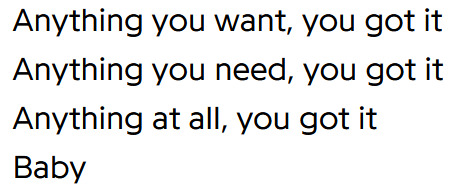
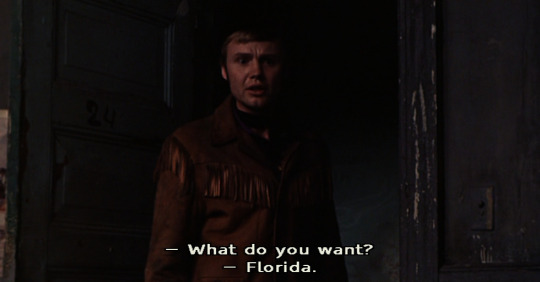
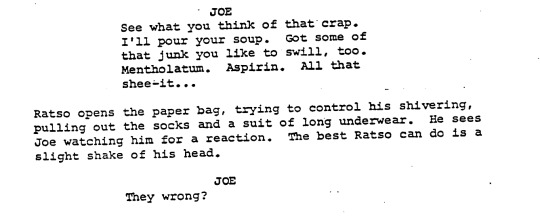
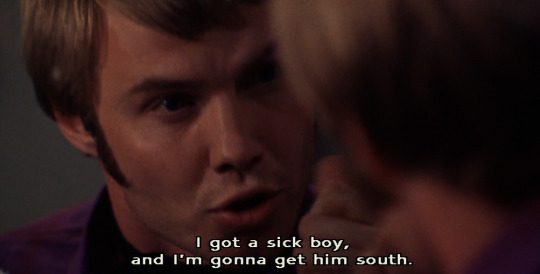

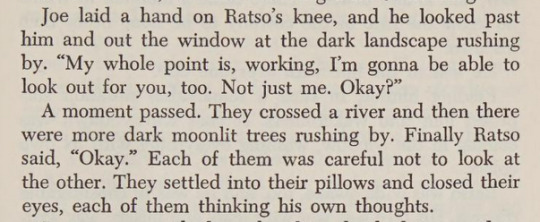

"You Got It" by Roy Orbison // Midnight Cowboy (1969) dir. John Schlesinger // Midnight Cowboy (Screenplay) by Waldo Salt // Midnight Cowboy (1965) by James Leo Herlihy
83 notes
·
View notes
Text
Here it is! My most frequently rewatched movie! Thank you for coming on this journey with me.
Script below the break
Hello and welcome back to The Rewatch Rewind! My name is Jane, and this is the podcast where I count down my top 40 most frequently rewatched movies in a 20-year period. Today, at last, we reach the end of that list as I discuss my number one: MGM’s 1940 comedy The Philadelphia Story, directed by George Cukor, written by Donald Ogden Stewart with uncredited contributions from Waldo Salt, based on the play by Philip Barry, and starring Cary Grant, Katharine Hepburn, and James Stewart.
Two years after the disastrous end of her first marriage to childhood friend C.K. Dexter Haven (Cary Grant), socialite Tracy Lord (Katharine Hepburn) is preparing for her second wedding, to George Kittredge (John Howard), general manager of her estranged father’s coal mining company. Eager to cover this story but knowing that Tracy loathes publicity, Spy magazine editor and publisher Sidney Kidd (Henry Daniell) enlists the help of Dexter to get reporter Macaulay “Mike” Connor (James Stewart) and photographer Elizabeth “Liz” Imbrie (Ruth Hussey) to the Lord house the day before the wedding. In those 24 hours before her second marriage begins, Tracy is prompted to rethink not only her choice of husband, but also her entire attitude toward people and life.
This must have been one of the first old movies I saw in 2002 because the only thing I remember about my initial experience of it was that I expected Tracy to accept Mike’s proposal, and if I’d been an experienced old movie watcher by then I would have known that obviously Katharine Hepburn was going to end up with Cary Grant, not James Stewart. I certainly did not immediately fully appreciate this movie, although I was intrigued enough to keep revisiting it until eventually it became my favorite. I watched it five times in each year from 2003 through 2005, four times in 2006, twice in 2007, 2008, and 2009, three times each in 2010 and 2011, five times in 2012, once in 2013, once in 2014, twice in 2015, once in 2017, twice in 2018, four times in 2019, once in 2020, twice in 2021, and once in 2022. Part of why I watch this so much is because it has three stars whose birthdays I celebrate almost every year, so I often watch it for Cary Grant’s birthday and then either Katharine Hepburn’s or James Stewart’s (their birthdays are only about a week apart so I don’t usually watch it for both). I think part of why I didn’t watch it in 2016 is because I watched it in late December of 2015 for the 75th anniversary of its release, so Grant’s birthday in January felt too soon to revisit it, and that May I decided to watch through all the Fred and Ginger movies starting with Astaire’s birthday, so I was less focused on Kate’s and Jimmy’s birthdays that year. And then later in 2016 I was too obsessed with Poe Party to watch much of anything else. But to make up for that, the reason I watched it so many times in 2019 is because Mary Kate Wiles used to host readings of plays and movie scripts with her actor friends for her Patreon, and I offered to transcribe the script of Philadelphia Story so she could do a reading of that one, and even though I knew the movie very well by then I decided to go through it a few more times to make sure I got all the details right, so eventually my love of Poe Party led to more rewatches of this. And the current Shipwrecked project, The Case of the Greater Gatsby, takes place in December of 1940 so there are lots of Philadelphia Story references in it and they make me very happy. Anyway, I’ve put quite a bit of effort into not watching this movie too many times too close together because I don’t ever want to overwatch it to the point of getting tired of it, like I did with a few other movies I’ve mentioned on this podcast, and many more that I burned out before they could make it into my top 40. While the stars’ birthdays have contributed to the view count, mostly this is my number one comfort movie that I know I can always turn to when I need something to watch, and I’m afraid of pushing it to the point where that no longer works. Although the fact that I sat through it 51 times in 20 years – the same number of views as number two plus number 40 on this list – and haven’t come close to getting tired of it yet indicates that I probably never will.
I don’t think I can really articulate what exactly it is about this movie that makes it my favorite to revisit, but I’m going to try. Certainly the fact that it features three of my favorite classic film stars helps, although a big part of why I love those stars so much is because of what they did in The Philadelphia Story. Every single member of the cast gives an absolutely fabulous performance. There isn’t a ton of action, but the dialogue is a perfect example of everything I love about the best Old Hollywood scripts: snappy and witty and clever on the surface, with real human emotion and intriguing philosophy underneath. The movie features many different kinds of brilliantly executed comedy, but the more serious moments still hit without feeling out of place. It deals with taboo subjects like divorce, infidelity, and alcoholism in ways that complied with production codes but still don’t feel too watered down. Basically, it has all the aspects I love about the other old movies on this list, only more so.
Several of my very favorite movie scenes of all time are in The Philadelphia Story. One is when Mike has had a lot to drink at a party and decides to visit Dexter in the middle of the night. The way drunk Jimmy Stewart and sober Cary Grant interact is hilarious and makes me desperately disappointed that the two of them never appeared in another movie together. At one point, Stewart makes a noise that’s kind of a mix of a hiccup, a cough, and a burp. Grant, thinking that Stewart has ruined the take, goes, “Excuse me,” sounding a little annoyed but trying to make a joke out of it, but then Stewart drunkenly responds with, “Huh?” indicating his intention to go on with the scene. Grant looks down, stifling a laugh, and then they continue with the dialogue, and I love that instead of reshooting it, or editing around it, they kept that in the movie. There may not be a blooper reel, but we still get to watch Jimmy Stewart almost break Cary Grant, and that’s good enough for me.
Another of my favorite scenes comes a bit earlier in the film, when Tracy and her younger sister, Dinah, played by Virginia Weidler, meet Mike and Liz for the first time. Tracy immediately saw through Dexter’s story that they were friends of her older brother’s and knows they’re reporters, but agreed to play along when Dexter informed her that Sidney Kidd intends to publish a story about Tracy’s father’s affair with a dancer unless he gets a story on her wedding. To protest the situation, Tracy and Dinah decide to put on a show for Mike and Liz, who don’t know that they know they’re reporters, and it is maybe my favorite comedic scene in any movie. First Dinah dramatically stumbles in wearing pointe shoes and some gaudy jewelry that was a wedding present she previously insulted. She then puts on an overly posh voice as she explains that she spoke French before she spoke English – “C’est vrai absolument!” – and boasts that she can play the piano “and sing at the same time!” She makes her way to the piano with the least graceful toe walk possible, and then bangs out a very silly rendition of “Lydia the Tattooed Lady,” a song mainly associated with Groucho Marx. While Mike and Liz are staring at her in bewilderment, Tracy peeks into the room and beams like she’s never been prouder of her sister. Once the song is finished, Tracy enters and praises Dinah in French, comparing her to Chopin, and then saying Dinah looks ill and she hopes it’s not smallpox, which freaks out Mike and Liz, but the audience knows it’s a private joke because earlier Tracy told Dinah that the only way she could postpone the wedding was to get smallpox. After Dinah leaves, it’s Tracy’s turn to confuse the reporters, and it is truly brilliant. The dialogue and the way it’s read, as Tracy turns the interview around and starts asking them invasive questions, is so good. Like when Tracy’s talking about how they don’t let any reporters in, “except for little Mr. Grace who does the social news. Can you imagine a grown-up man having to sink so low?” or when she’s welcoming them to Philadelphia and says, “It’s a quaint old place, don’t you think? Filled with relics, and how old are you, Mr. Connor?” It’s the seemingly accidental but actually very deliberate insults that get me. And then on top of that, there is some incredible yet subtle physical comedy going on throughout the conversation. Tracy accidentally-on-purpose pushes Mike and Liz into each other as she offers them seats, and there’s a whole very long bit between Tracy and Mike involving cigarettes, matches, and lighters that I didn’t even notice the first few times I watched it because I was too focused on what they were saying. It’s a thoroughly enjoyable scene all the way through, and every time I watch Tracy exit that room, leaving the reporters to ponder their bafflement, I have to applaud.
But the movie also excels at mixing some drama and seriousness in with the comedy. There’s a lot of focus on how Tracy demands perfection from herself and everyone around her, and as a result is missing out on the joys of human messiness. She makes a big deal about never drinking alcohol, although Dexter reveals that she did get drunk one time when they were married, and later remembered nothing about it. But after Dexter tells her that being married to her felt like being a high priest to a goddess, and George tells her that he worships her like a queen, and her father, who showed up uninvited, tells her she might just as well be made of bronze, Tracy gives in and starts drinking heavily at the party the night before her wedding, which was where Mike also got very drunk. Tracy and Mike meet up at Dexter’s house, then go back to her place, and dance and argue for a while until Mike kisses her and tells her that he sees her as a human being, which is a wonderful change of pace for her, so she suggests they go swimming together. Later, Dexter and George see Mike carrying Tracy back to the house, both of them in bathrobes, and George assumes the worst. The next morning, Tracy can’t remember what happened, but Dinah tells her that she saw Mike carry Tracy into her room – which is another excellent scene, Virginia Weidler was one of the best child actors of all time and people barely ever talk about her anymore, but she and Katharine Hepburn do a fabulous job of getting the point across that they both think Tracy slept with Mike the night before without breaking production codes. And then after that when Mike appears, he and Tracy have the most excruciatingly awkward conversation, and it’s so painful but so good. Dexter also shows up trying to comfort Tracy, and I love the way he doesn’t accuse her or condemn her or even ask her what happened, partly because he knows she doesn’t remember, partly because Mike told him nothing happened, but partly because you get the feeling that he wouldn’t think any less of her if she had drunkenly hooked up with Mike. And maybe that’s reading too much into this, but his reaction is certainly quite different from George’s, which I guess makes sense because technically she would have been cheating on George and not Dexter, but George doesn’t even let her explain before breaking up with her by note. He does finally show up in person as she’s reading the note aloud to Dexter, Mike, and Liz, and their confrontation is so well done – I particularly love Liz’s “Say something, stupid!” to Mike, who is just standing there listening to George accuse Tracy of having an affair with him. But after a while, Mike does eventually reveal that their so-called affair consisted of exactly two kisses and a rather late swim. Tracy and George don’t believe him at first, and then Tracy is offended, until he points out that she was very drunk and he didn’t want to take advantage of her. And like, I know that this movie was made in 1940, so the censors weren’t going to let Tracy actually have sex with another man the night before her wedding anyway, but I still can’t help loving the way they handled this. Tracy makes a bit of a fool of herself and learns that George is not the right man for her without going too far, and Mike demonstrates that it’s not that difficult to respect a woman’s autonomy and recognize when she is unable to consent.
I have a lot of mixed and complicated feelings about this story from an aroace perspective. On the one hand, it is very focused on romance and marriage. Also the whole thing about characters describing Tracy using phrases like “virgin goddess” and “perennial spinster, however many marriages” to illustrate her coldness and lack of human understanding is…not exactly an ace-affirming metaphor. On the other hand, I always appreciate stories about adults who have the chance to sleep together and choose not to, even when I know it’s at least partly because of production codes. And somehow, something about the way Dexter, Tracy, Mike, and Liz all interact give me hints of queer found family vibes, even though they end up paired off heterosexually. Maybe it’s the fact that it was directed by a gay man and features at least two probably queer actors that’s giving me that vibe, I don’t know. Another of my favorite scenes – I know, I have way too many – is when Dexter and Liz return to the Lord house after writing a blackmail note to Sidney Kidd. It’s a fairly short scene, but the way the two of them interact as platonic friends who understand each other but clearly don’t like each other romantically is not something I’m used to seeing in a scene featuring a man and a woman alone, and it makes me happy. Mike also has some great moments with Dexter, as does Tracy with Liz. I like to think that the four of them maintain their friendship after the events of the movie, rather than amatonormatively going off and doing their own thing with their spouse and forgetting about their friends. This movie does portray sex and romance as part of the human experience, but I don’t feel like it portrays them as the only important part. The message is all about pursuing the life that’s right for you, and not looking down on people who have different priorities, and when you look at it from that perspective, it actually is kind of ace-affirming, albeit probably unintentionally. But as I’ve indicated multiple times in previous episodes, asexual representation is so rare, and aromantic representation is even rarer, that if you can find an approximation of affirmation by tilting a story and squinting at it, even that feels exciting. That’s how low the bar is.
With that being said, as a teenager I definitely did relate to Tracy Lord, at least in terms of the way I was perceived. I think a lot of my peers thought that I thought I was better than them, when it was mostly that I just didn’t understand them. I don’t remember anyone calling me a goddess or a queen or a statue, but other middle and high schoolers definitely teased me for being “perfect”, which told me that they didn’t really see me as a person, so I felt Tracy’s pain and confusion when she got called out like that. I do think that like Tracy, I had a lot to learn about letting myself make mistakes and not judging other people too harshly for theirs, but I also still strongly feel that some of the criticism leveled at Tracy – and at me – was unwarranted. I can’t tell if the movie wants us to agree with Tracy’s father when he blames his philandering on not having the right kind of daughter, but I think that’s entirely unreasonable of him, and Tracy absolutely does not deserve that. And I’m not sure it’s fair of Dexter to blame her for contributing to his alcoholism, but at least Dexter takes some responsibility for his actions, unlike Seth Lord. I think my peers didn’t understand me any more than I understood them, but I probably could have cut them more slack and tried to get to know them better before writing most of them off as too different for me to possibly get to know. The circumstances in this movie are very different from being a high school misfit, but as a high schooler who often had trouble relating to movies that were actually about high school misfits, somehow this movie spoke to me. It was an escape from high school that also helped get me through high school. The story helped me become a less judgmental and more forgiving person toward others while also helping me feel better about being who I was unapologetically. I also got similar messages from other sources, so I don’t want to give this movie too much credit, but at the same time, I don’t think any single movie affected my teenage years more than this one, so I would certainly be a different person if I had never seen it.
The story of how this movie came about and what it led to is also very important to me. After appearing in several box office flops in the late 1930s – several of which made it onto this list – Katharine Hepburn left Hollywood for Broadway to star in and financially back the stage version of Philadelphia Story, which Philip Barry had written specifically for her. Howard Hughes purchased the film rights as a gift for Hepburn, with whom he had been romantically involved, although it seems like the romantic part of their relationship was over before that, so this is like My Man Godfrey in that it turned out the way it did partly because of exes who were still friends. Katharine Hepburn then sold the rights to Louis B. Mayer for only $250,000 on the condition that she would have input and veto power over producer, director, screenwriter, and cast. She got the director and writer she wanted, but her first choice for the two male leads – Clark Gable and Spencer Tracy – were unavailable. Gable reportedly hated George Cukor and was rumored to be at least partly responsible for the director being kicked off of Gone with the Wind, so it’s probably just as well that he wasn’t involved. Future lovers Hepburn and Tracy hadn’t even met yet at this point, so it would have been interesting if this was their first movie. But ultimately, Cary Grant came on board, under the condition that he would receive top billing, which feels a bit strange to see because Hepburn is clearly playing the main lead, but Grant also donated his entire salary to the British War Relief Society, so we can’t accuse him of too much selfishness. And James Stewart’s performance as Mike would earn him one of the film’s two Oscars, although he apparently thought that Henry Fonda should have won for The Grapes of Wrath, and that he had only received it as belated recognition for his performance in Mr. Smith Goes to Washington the previous year. Donald Ogden Stewart also won for Best Screenplay. The film was also nominated for Best Picture and Cukor was nominated for Best Director, and the performances of Katharine Hepburn and Ruth Hussey were nominated as well. The fact that Hepburn didn’t win – and lost to her rival Ginger Rogers, no less – indicates that Hollywood was still a little reluctant to welcome her back. But this movie crucially changed the public’s perception of Katharine Hepburn, transforming her from box office poison to a box office draw. They were calling her a has-been in 1938, but with The Philadelphia Story she showed them that she still had more to contribute, and her career took off in the 1940s, and lasted into the 1990s.
Even now, generations later, twenty years after Hepburn’s death, it’s easy to tell just by watching this movie why it was such a turning point for her. She completely embodies the spoiled socialite, but she makes Tracy sympathetic enough that when she is taken down a few pegs, as she needed to be, the audience feels sorry for her rather than gloating. Tracy is radiant enough that we understand why George worships her, yet she is down to earth enough that we understand her yearning to be seen not as an object of worship, but as a human being. Hepburn nails both the comedic scenes and the more serious dramatic scenes, with no hint of the desperately-trying-too-hard actress who comes across too often in some of her earlier films. While I obviously still love many of those films, watching this one feels like we’re seeing a Katharine Hepburn who has finally come into her own. There certainly was an element of trying to get the public to like her, but there’s no desperation about it. She gets this character, and knows how to make the audience get her too. I don’t think I could have found Tracy so relatable if she hadn’t been played like that. And listen, I’m thrilled that Ginger Rogers won an Oscar, especially because Hepburn would end up with four and didn’t really need this win, but if I had to pick one single all-time favorite film performance, I can’t think of any that would beat Katharine Hepburn’s Tracy Lord. Although I also have to say that I think Cary Grant’s performance as Dexter is incredibly underappreciated. I’ve said before that sometimes I have trouble taking him seriously in dramatic roles, but this was the ideal blend of seriousness and silliness for him, and he nails every emotional beat. He does an excellent job of showing the audience that he has grown and learned from the mistakes of his first marriage and is ready to move forward with healing his relationship with Tracy, which makes this a much better remarriage story than His Girl Friday, for example. There were a lot of movies made around this time about a divorced couple reconciling, mostly because that was the only way the Production Code allowed the scandalous topic of divorce to be addressed on film, but Philadelphia Story feels different from most of those. It’s more like Pride and Prejudice, if Pride and Prejudice started right after Elizabeth turned down Darcy’s first proposal. Both are about a couple who needed to grow and reflect before they could be happy together. I think those are my favorite kind of romances because they have less to do with attraction, which I don’t really understand, and more to do with trying to become the best version of oneself, which everyone can do regardless of how they feel about romance. Anyway, I’m a little sad that this was the last time Cary Grant and Katharine Hepburn worked together, but I’m so glad they got to make this masterpiece before their careers diverged.
In 1956, The Philadelphia Story was remade as a musical film called High Society, which I watched 12 times. I enjoy that version too, although obviously not nearly as much as this version. It’s a fun romp, and the Cole Porter songs are great, but it doesn’t quite pack the same emotional punch as The Philadelphia Story. Strangely, considering I don’t think anything can touch Hepburn’s original portrayal, my favorite part of that movie is Grace Kelly’s performance as Tracy. She put her own spin on the character and was clearly having fun – probably at least partly because she’d already decided to retire from acting and marry a prince, and was wearing her actual engagement ring in the film. My biggest objection to High Society – and yes, I know I’ve complained about this too many times on this podcast but bear with me one more time – is the age gap between Dexter and Tracy. They’re supposed to have grown up together, but Bing Crosby was 26 years older than Grace Kelly, and their dynamic is just all wrong. The story doesn’t work if Dexter is old enough to be Tracy’s father! Whereas in Philadelphia Story, we’ve got Cary Grant who was born in 1904, Katharine Hepburn who was born in 1907, and James Stewart who was born in 1908. They were all basically the same age! It can be done! John Howard was born in 1913, so he was a bit younger, but I think that works for the way George looks up to and admires Tracy, and still that’s a relatively small gap. Anyway, we can add “getting actors of appropriate ages” to the long list of things The Philadelphia Story did right.
So there we have it. I’ve talked about all of my top 40 most frequently rewatched movies of my first 20 years of keeping track. Thank you so much for listening to all my rambling! I hope you’ve found this entertaining and informative – I know I have. I’m planning to do one more epilogue episode in a few weeks summarizing what I’ve learned from this project, so stay tuned for that if you’re interested. I also have lots of other ideas for movie-related podcasts that may or may not come to fruition, we’ll see. Since I don’t know what the next movie I’ll podcast about will be, I’ll leave you with one last quote from The Philadelphia Story: “We all go haywire at times, and if we don’t, maybe we ought to.”
#the philadelphia story#george cukor#katharine hepburn#cary grant#james stewart#i love this movie so much#this project has been a lot of fun#i'll be back with a conclusions episode soon-ish#but i'm going to take a break first
12 notes
·
View notes
Photo
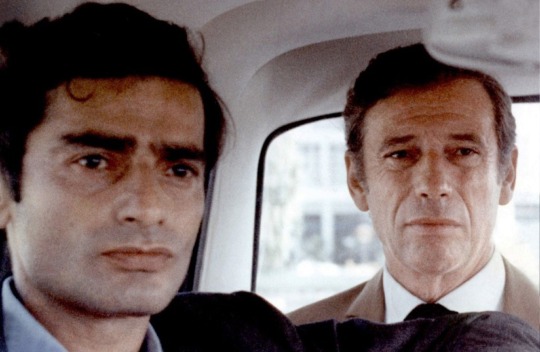
Charles Denner and Yves Montand in Z (Costa-Gavras, 1969)
Cast: Jean-Louis Trintignant, Yves Montand, Irene Papas, Pierre Dux, Jacques Perrin, Charles Denner, François Périer, Georges Géret, Bernard Fresson, Marcel Bozzuffi, Julien Guiomar, Magali Noël. Screenplay: Jorge Semprún, based on a novel by Vassiliis Vassilikos. Cinematography: Raoul Coutard. Production design: Jacques D’Ovidio. Film editing: Françoise Bonnot. Music: Mikis Theodorakis.
Costa-Gavras's great political thriller, Z, was an unsettling film to watch in 1969, the year after Robert Kennedy and Martin Luther King Jr. were assassinated, the police clashed with demonstrators at the Democratic convention in Chicago, and Richard Nixon was elected president. What makes it unsettling in today's political climate is the way the film shows the destructive collaboration of ideologues, buffoons, and thugs. It's an often grimly funny movie, particularly in the portrayal of the general in charge of the police, who as played by Pierre Dux is both ideologue and buffoon. There is buffoonery also among the thugs, and Costa-Gavras has fun mocking the conspirators who, once they angrily leave the room in which they've been indicted, each try to open a locked door. But we mock them in vain. For while the efforts of the prosecutor played beautifully by Jean-Louis Trintignant are heroic and Costa-Gavras and screenwriter Jorge Semprún make us expect justice to prevail, it doesn't. The story is that of the assassination of Greek opposition politician Grigoris Lambrakis in 1963 and the subsequent investigation that brought a glimmer of hope to the country only to be squelched by the military coup of 1967. However, the film is set in no specific country -- it was filmed in Algeria -- and only an opening "disclaimer" that parodies the usual assertion about any resemblance to persons living or dead dares to say that the resemblances in the film are entirely intentional. Costa-Gavras and Semprún were political exiles from, respectively, Greece and Spain. The composer Mikis Theodorakis had been arrested and his music was banned in Greece; he gave Costa-Gavras permission to use existing compositions for the film score. But the decision to set the film in no particular place only strengthened its ability to reach out and make its story meaningful beyond a specific place and time. Although Yves Montand and Irene Papas get top billing as the assassinated politician and his wife, Montand's role is comparatively small and Papas's is virtually a cameo. The movie is mostly carried by Trintignant and by Jacques Perrin, one of its producers who also plays a very aggressive investigative journalist, and a capable supporting cast. It won Oscars as the best foreign-language film and for Françoise Bonnot's film editing. It was also nominated in the best picture category, and picked up nominations for best director and best adapted screenplay, but lost in those categories to Midnight Cowboy and its director, John Schlesinger, and screenwriter, Waldo Salt.
6 notes
·
View notes
Photo
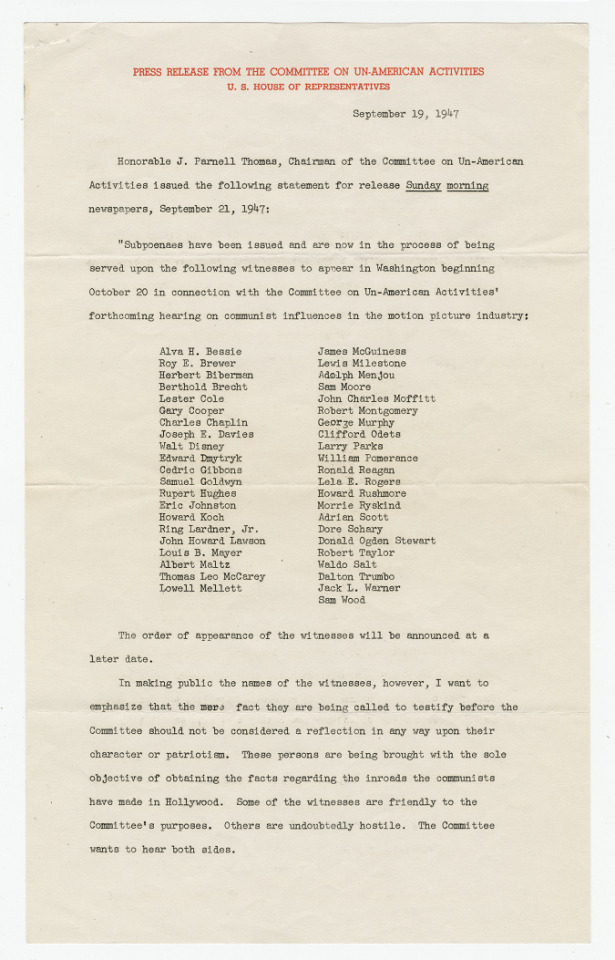

On 9/19/1947, the House Un-American Activities Committee subpoenaed witnesses on the “inroads the communists have made in Hollywood.”
Among the witnesses were Charlie Chaplin, Ronald Reagan, Walt Disney, and others.
File Unit: Exhibits, Evidence and Other Records of the Investigative Section of the Internal Security Committee During the 79th through 94th Congresses Related to the Hollywood Black List, 1945 - 1976
Series: Committee Papers, 1945 - 1975
Record Group 233: Records of the U.S. House of Representatives, 1789 - 2015
Transcription:
PRESS RELEASE FROM THE COMMITTEE ON UN-AMERICAN ACTIVITIES
U.S. HOUSE OF REPRESENTATIVES
September 19, 1947
Honorable J. Parnell Thomas, Chairman of the Committee on Un-American Activities issued the following statement for release Sunday morning ["Sunday morning" underlined] newspapers, September 21, 1947:
"Subpoenaes have been issued and are now in the process of being served upon the following witnesses to appear in Washington beginning October 20 in connection with the Committee on Un-American Activities' forthcoming hearing on communist influences in the motion picture industry:
Alva H. Bessie
Roy E. Brewer
Herbert Biberman
Berthold Brecht
Lester Cole
Gary Cooper
Charles Chaplin
Joseph E. Davies
Walt Disney
Edward Dmytryk
Cedric Gibbons
Samuel Goldwyn
Rupert Hughes
Eric Johnston
Howard Koch
Ring Lardner, Jr.
John Howard Lawson
Louis B. Mayer
Albert Maltz
Thomas Leo McCarey
Lowell Mellett
James McGuiness
Lewis Milestone
Adolph Menjou
Sam Moore
John Charles Moffitt
Robert Montgomery
George Murphy
Clifford Odets
Larry Parks
William Pomerance
Ronald Reagan
Lela E. Rogers
Howard Rushmore
Morrie Ryskind
Adrian Scott
Dore Schary
Donald Ogden Stewart
Robert Taylor
Waldo Salt
Dalton Trumbo
Jack L. Warner
Sam Wood
The order of appearance of the witnesses will be announced at a later date.
In making public the names of the witnesses, however, I want to emphasize that the mere fact they are being called to testify before the Committee should not be considered a reflection in any way upon their character or patriotism. These persons are being brought with the sole objective of obtaining the facts regarding the inroads the communists have made in Hollywood. Some of the witnesses are friendly to the Committee's purposes. Others are undoubtedly hostile. The Committee wants to hear both sides.
[page 2]
PRESS RELEASE FROM THE COMMITTEE ON UN-AMERICAN ACTIVITIES
U.S. HOUSE OF REPRESENTATIVES
- 2 -
The Committee had originally hoped to begin this hearing on September 29. However, a number of unforeseen circumstances have arisen regarding the membership of the Committee which necessitates a delay until October 20, in order that all members may be present for this important hearing. Mr. Mundt and Mr. Nixon are now in Europe as members of Congressional committees studying conditions there. Mr. Veil is convalescing from a recent operation, and Mr. Peterson has informed me that he cannot possibly attend the hearings this month. I feel quite certain, however, that all the members will be available by October 20.
Hearings will begin as scheduled September 24 on the Hanns Eisler phase of this hearing. This cannot be delayed until the October date for the reason that all of the witnesses have been subpoenaed and are in Washington at this time, some having been brought from foreign countries. The announced witnesses in the Hanns Eisler care are as follows:
Sumner Welles
P.C. Hutton, Second Secretary and Consul, Guatemala City, Guatemala
George S. Messermith, former Ambassador to Argentina
Joseph Savoretti, Asst. Commissioner for Adjudication U.S. Immigration and Naturalization Service.
Clarence R. Porter, Chief Inspector U.S. Immigration and Naturalization Service.
Hearings will begin in the Caucus Room of the Old House Office Building, at 10:30 A.M., September 24.
I should also like to announce at this time that I intend to make a nation-wide radio address early in October relative to the Hollywood hearing."
#archivesgov#September 19#1947#1940s#postwar#HUAC#House Un-American Activities Committee#communism#red scare#Hollywood
37 notes
·
View notes
Photo
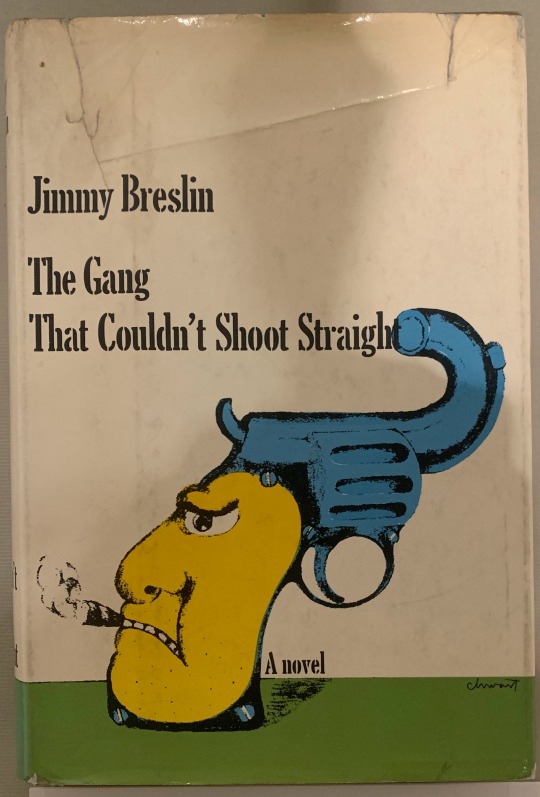
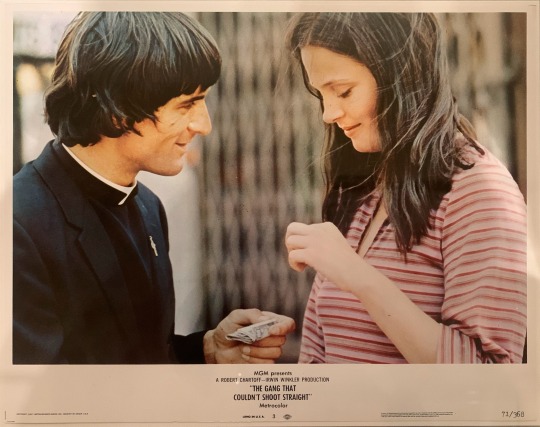
“The Gang That Couldn't Shoot Straight by Jimmy Breslin
New York, Viking Press, 1969
BV126
Lobby card for The Gang That Couldn't Shoot Straight (1971)
Ransom Center Lobby Cards, 41
Robert De Niro's first mainstream studio film, The Gang That Couldn't Shoot Straight (1971), seemed to have all the necessary elements for success. It was based on a bestselling book by the Pulitzer Prize-winning columnist Jimmy Breslin and a screenplay written by Waldo Salt, who had won the Academy Award for Adapted Screenplay for Midnight Cowboy (1969).”
#robert de niro#robert de niro archives#robert de niro hrc#hrc archives#harry ransom center#ut austin#films#film history#books#posters
9 notes
·
View notes
Text
Waldo Jeffers had reached his limit. It was now Mid-August which meant he had
been separated from Marsha for more than two months. Two months, and all he had
to show was three dog-eared letters and two very expensive long-distance phone
calls. True, when school had ended and she'd returned to Wisconsin, and he to
Locust, Pennsylvania, she had sworn to maintain a certain fidelity. She would
date occasionally, but merely as amusement. She would remain faithful.
But lately Waldo had begun to worry. He had trouble sleeping at night and when
he did, he had horrible dreams. He lay awake at night, tossing and turning
underneath his pleated quilt protector, tears welling in his eyes as he
pictured Marsha, her sworn vows overcome by liquor and the smooth soothing of
some neanderthal, finally submitting to the final caresses of sexual oblivion.
It was more than the human mind could bear.
Visions of Marsha's faithlessness haunted him. Daytime fantasies of sexual
abandon permeated his thoughts. And the thing was, they wouldn't understand how
she really was. He, Waldo, alone understood this. He had intuitively grasped
every nook and cranny of her psyche. He had made her smile. She needed him, and
he wasn't there (Aw...).
The idea came to him on the Thursday before the Mummers' Parade was scheduled
to appear. He'd just finished mowing and etching the Edelsons lawn for a dollar
fifty and had checked the mailbox to see if there was at least a word from
Marsha. There was nothing but a circular from the Amalgamated Aluminum Company
of America inquiring into his awing needs. At least they cared enough to write.
It was a New York company. You could go anywhere in the mails. Then it struck
him. He didn't have enough money to go to Wisconsin in the accepted fashion,
true, but why not mail himself? It was absurdly simple. He would ship himself
parcel post, special delivery. The next day Waldo went to the supermarket to
purchase the necessary equipment. He bought masking tape, a staple gun and a
medium sized cardboard box just right for a person of his build. He judged that
with a minimum of jostling he could ride quite comfortably. A few airholes,
some water, perhaps some midnight snacks, and it would probably be as good as
going tourist.
By Friday afternoon, Waldo was set. He was thoroughly packed and the post
office had agreed to pick him up at three o'clock. He'd marked the package
"Fragile", and as he sat curled up inside, resting on the foam rubber
cushioning he'd thoughtfully included, he tried to picture the look of awe and
happiness on Marsha's face as she opened her door, saw the package, tipped the
deliverer, and then opened it to see her Waldo finally there in person. She
would kiss him, and then maybe they could see a movie. If he'd only thought of
this before. Suddenly rough hands gripped his package and he felt himself borne
up. He landed with a thud in a truck and was off.
Marsha Bronson had just finished setting her hair. It had been a very rough
weekend. She had to remember not to drink like that. Bill had been nice about
it though. After it was over he'd said he still respected her and, after all,
it was certainly the way of nature, and even though, no he didn't love her, he
did feel an affection for her. And after all, they were grown adults. Oh, what
Bill could teach Waldo - but that seemed many years ago.
Sheila Klein, her very, very best friend, walked in through the porch screen
door and into the kitchen. "Oh gawd, it's absolutely maudlin outside." "Ach, I
know what you mean, I feel all icky!" Marsha tightened the belt on her cotton
robe with the silk outer edge. Sheila ran her finger over some salt grains on
the kitchen table, licked her finger and made a face. "I'm supposed to be
taking these salt pills, but, " she wrinkled her nose, "they make me feel like
throwing up." Marsha started to pat herself under the chin, an exercise she'd
seen on television. "God, don't even talk about that." She got up from the
table and went to the sink where she picked up a bottle of pink and blue
vitamins. "Want one? Supposed to be better than steak, " and then attempted to
touch her knees. "I don't think I'll ever touch a daiquiri again."
She gave up and sat down, this time nearer the small table that supported the
telephone. "Maybe Bill'll call, " she said to Sheila's glance. Sheila nibbled on
a cuticle. "After last night, I thought maybe you'd be through with him." "I
know what you mean. My God, he was like an octopus. Hands all over the place."
She gestured, raising her arms upwards in defense. "The thing is, after a
while, you get tired of fighting with him, you know, and after all I didn't
really do anything Friday and Saturday so I kind of owed it to him. You know
what I mean." She started to scratch. Sheila was giggling with her hand over
her mouth. "I'll tell you, I felt the same way, and even after a while, " here
she bent forward in a whisper, "I wanted to!" Now she was laughing very loudly.
It was at this point that Mr. Jameson of the Clarence Darrow Post Office rang
the doorbell of the large stucco colored frame house. When Marsha Bronson
opened the door, he helped her carry the package in. He had his yellow and his
green slips of paper signed and left with a fifteen cent tip that Marsha had
gotten out of her mother's small beige pocketbook in the den. "What do you
think it is?" Sheila asked. Marsha stood with her arms folded behind her back.
She stared at the brown cardboard carton that sat in the middle of the living
room. "I dunno."
Inside the package, Waldo quivered with excitement as he listened to the
muffled voices. Sheila ran her fingernail over the masking tape that ran down
the center of the carton. "Why don't you look at the return address and see who
it's from?" Waldo felt his heart beating. He could feel the
vibrating footsteps. It would be soon.
Marsha walked around the carton and read the ink-scratched label. "Ah, god,
it's from Waldo!" "That schmuck!" said Sheila. Waldo trembled with expectation.
"Well, you might as well open it, " said Sheila. Both of them tried to lift the
staple flap. "Ah sst, " said Marsha, groaning, "he must have nailed it shut."
They tugged on the flap again. "My God, you need a power drill to get this
thing open!" They pulled again. "You can't get a grip." They both stood still,
breathing heavily.
"Why don't you get a scissor, " said Sheila. Marsha ran into the kitchen, but
all she could find was a little sewing scissor. Then she remembered that her
father kept a collection of tools in the basement. She ran downstairs, and when
she came back up, she had a large sheet metal cutter
in her hand. "This is the best I could find." She was very out of breath.
"Here, you do it. I-I'm gonna die." She sank into a large fluffy couch and
exhaled noisily. Sheila tried to make a slit between the masking tape and the
end of the cardboard flap, but the blade was too big and there wasn't enough
room. "God damn this thing!" she said feeling very exasperated. Then smiling,
"I got an idea." "What?" said Marsha. "Just watch, " said Sheila, touching her
finger to her head.
Inside the package, Waldo was so transfixed with excitement that he could
barely breathe. His skin felt prickly from the heat, and he could feel his
heart beating in his throat. It would be soon. Sheila stood quite upright and
walked around to the other side of the package. Then she sank down to her
knees, grasped the cutter by both handles, took a deep breath, and plunged the
long blade through the middle of the package, through the masking tape, through
the cardboard, through the cushioning and (thud) right through the center of
Waldo Jeffers head, which split slightly and caused little rhythmic arcs of red
to pulsate gently in the morning sun.
4 notes
·
View notes
Note
SORRY HLVRAI ANOM HERE I WENT TO BED UHM. YEAH THEIR LIKE EVERYWHERE. THEY WERE RHE DELTARUNE SALT ROUTE GUY. THEIR IN EVWRY FUCKING FANDOM IONCE WENT INTO THE DC COMICS TAG AND THEYQ ERE THERE its like a weres waldo everytime i look in any tag cause theres like a 70% chance their in there

44 notes
·
View notes
Text
Movie Reviews: The YouTube Effect / Desperate Souls, Dark City and the Legend of Midnight Cowboy / Mission: Impossible - Dead Reckoning Part One
This week I got to review a wide spectrum of cinema:
The YouTube Effect
Let’s talk about what an impressive director Alex Winter has become! Yes, the actor known for The Lost Boys and the Bill & Ted movies, has made a lot of noteworthy work. As far back as the late 80s he directed some music videos for artists like Red Hot Chili Peppers, Ice Cube and Extreme. I really enjoyed his 1991 sketch comedy show The Idiot Box when it was on MTV. His 2012 documentary on Napster Downloaded was a deep dive into the file sharing site’s brief but historic run. His 2020 doc Showbiz Kids looked at the ups and downs for various former child actors (read my soundtrack review here). But it was his Frank Zappa doc Zappa, with access to Zappa’s archives, that truly got the attention or critics and Zappa fans (read my review here). Now he has turned his attention to possibly the biggest website on the planet with The YouTube Effect.
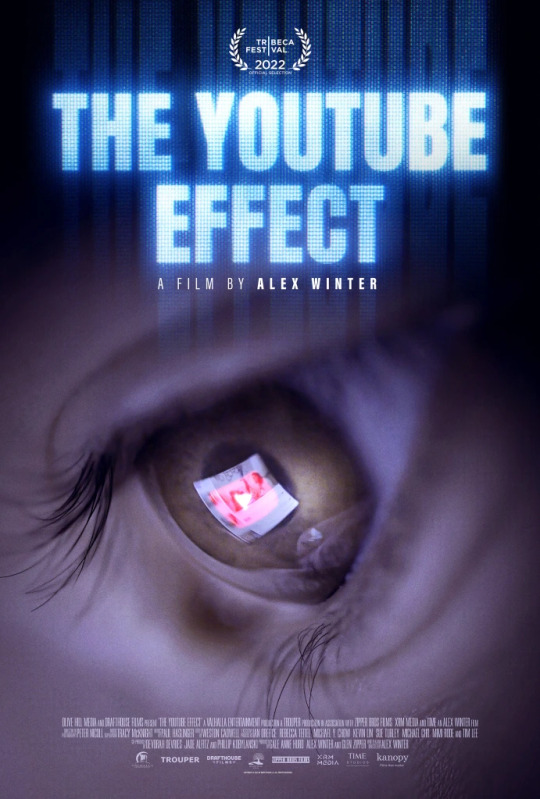
movie poster
Prior to 2005 there had been some websites for sharing videos to stream, but the technology wasn’t quite there yet, it was usually buffering and stopping/starting. So three employees of PayPal founded YouTube in 2005. The doc tracks the site’s rise and it looks at various issues that have happened as a direct result of the site, notably the spread of misinformation and how crimes are being live-streamed by criminals. Like everyone, I use YouTube to watch videos and search for things I’m looking for, but the tool can be used for bad in the wrong hands. Unlike Downloaded, Winter didn’t have the advantage of hindsight to look at Napster and say this is what it lead to and influenced. Here he is presenting a ton of problems, but we’re still in the thick of it and we don’t have hindsight just yet. I think maybe some sort of resolve would’ve been more satisfying for the viewer. Having said that, he looked at the platform from a lot of different angles and used a great deal of subjects for insight. I think it’d be cool to watch this one on YouTube just to send a message!
For info on The YouTube Effect: https://www.yteffect.com/
3 out of 5 stars
Desperate Souls, Dark City and the Legend of Midnight Cowboy
It is impossible to overstate how revolutionary the 1969 movie Midnight Cowboy was. The 1960s were one of the most transitional decades ever and to end the decade with an X-rated movie about the friendship between a male prostitute (Jon Voight) and a con man (Dustin Hoffman) and it actually won the Academy Award for Best Picture (the only X-rated film to ever do so) was like the counterculture took over the mainstream for one brief shining moment. The film was a buddy movie about these two unlikely characters who form a bond in the gritty streets of NYC and it was held together by Harry Nilsson’s freewheelin’ country-folk soundtrack. There is so much to unpack within the film itself and sadly screenwriter Waldo Salt died in 1987 and director John Schlesinger died in 2003. But in the new documentary Desperate Souls, Dark City and the Legend of Midnight Cowboy, there’s loads of cast members, experts and relatives of the creators to contextualize.
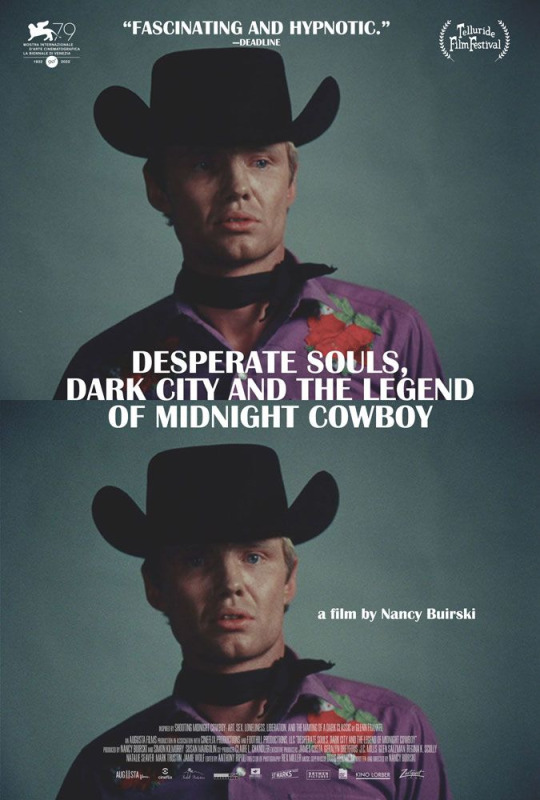
movie poster
Director Nancy Buirski did the great doc By Sidney Lumet about the late great director Sidney Lumet. Here she dives deep and even deeper into the legend of Midnight Cowboy. The doc is not so much about the making-of (although there are some anecdotes) as it is analysis of the film and how it changed the culture. The movie Midnight Cowboy addressed males in addition to females hiring a male prostitute, which was something that was rarely addressed in mainstream cinema at that time. It opened doors for LGBTQ characters and storylines in film thereafter. The doc also gets into how it was rated X at the time of its release and how it would be different today. The MPAA ratings were only formed a year earlier and the homosexual subject matter garnered the X rating. It later got an R rating for it’s 1971 reissue. Today this would not be an X and, in fact, an edited version of it was later broadcast on television. There are also various other anecdotes about Salt and Schlesinger. The doc is analytic and at times almost academic, but the real thing this doc did for me was making me want to go back and re-watch Midnight Cowboy and marvel at it’s powerhouse performances!
For info on DSDCATLOMC: https://zeitgeistfilms.com/film/desperate-souls-dark-city-and-the-legend-of-midnight-cowboy
3.5 out of 5 stars
Mission: Impossible - Dead Reckoning Part One
Based on the 1966-1973 spy TV series, the Mission: Impossible movies have actually gotten better. It’s rare that a series gets better after that many films. The first film kicked off in 1996 with Brian De Palma directing. The plot was a little hard to follow but it had some epic action sequences. As the lead spy Ethan Hunt, Tom Cruise has always been trying to one up the last film. 2 was directed by my boy John Woo and had some killer action, but like a lot of these movies the director stays in their lane as they fit into a series. III from JJ Abrams had a tremendous villain with Philip Seymour Hoffman (even cooler that two of the stars of Magnolia were driving the film). Then in the next few films it actually got better and better. Christopher McQuarrie, a gifted writer turned director, brought his story skills to the series. 2018’s Fallout was the best one until now. Who can forget that final action scene of Ethan defusing the bomb? Now McQuarrie is back to Mission: Impossible - Dead Reckoning: Part One, which opens this week. I’m going to try my best to describe this movie without spoilers. Ethan has to retrieve the other half of a secret key. There is also a mysterious AI web known as The Entity. Ethan has a new frenemy in Grace, a professional thief. That’s about all I can say without giving more away.
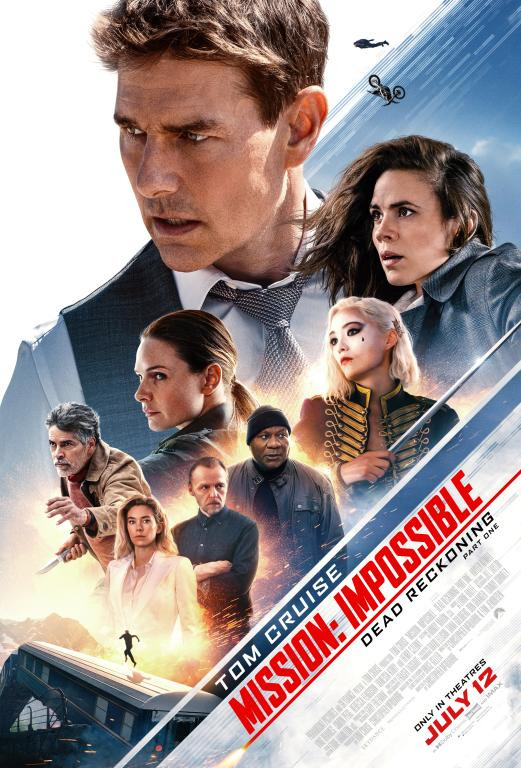
movie poster
Last year’s Tom Cruise vehicle Top Gun: Maverick was co-written by McQuarrie and it was that very rare sequel that exceeded the original. It was a loving tribute to the original but the action and story was even better than the original. This new MI movie is the best one yet. I recommend seeing this in the best projection and sound system possible. Instead of most MI movies where there’s 2 or 3 action set pieces you remember there were countless ones here and it’s just one after another. Again I can’t say much more without spoilers but it’s worth seeing. There’s a Part One in the title so you know the story is going to continue with Part Two due in 2024. Tough act to follow.
For info on Mission: Impossible - Dead Reckoning: Part One: https://www.missionimpossible.com/
4 out of 5 stars
#Movie Reviews#the youtube effect#alex winter#documentary#desperate souls dark city and the legend of midnight cowboy#midnight cowboy#nancy buirski#mission: impossible - dead reckoning part one#christopher mcquarrie#mission: impossible#film geek
2 notes
·
View notes
Text
2021 sundance giving waldo salt screenwriting award to on the count of three and drama competition to coda
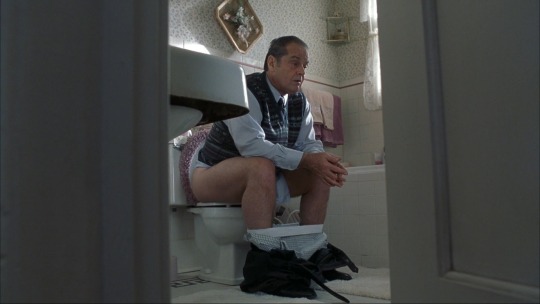
12 notes
·
View notes
Text
In the scene in Midnight Cowboy in which Joe has secured his future prospects (is starting to achieve his dream) and returns home with socks, medicine and milk for Rico, and gum for himself, Waldo Salt (screenwriter) said that he meant that Joe's gifts were parting gifts. The socks would keep his feet warm, the meds would heal him and the milk would keep him strong (my interpretation), i.e., gifts to keep Rico alive so Joe can selfishly leave him with a good conscience. Now, that means (to Waldo) that Joe would leave/abandon Rico were Rico healthy (enough). But, would he be able to do that? I think Rico (who suspected something was up when Joe returned with gifts) would be pretty hurt by it (perhaps act up his sickness to make him stay), and Joe would think about Rico a lot while on his own. They still have the unspoken queer bond between them. Perhaps, he'd walk the streets and see Rico in every homeless kid on the street. He's in shop windows. He's in cafe windows. When Joe wakes up in the morning he can hear movement in his new room and coffee being brewed and he says "Am tryna sleep Ratso" but there's nobody there. It's his imagination playing tricks on him. So he's alone. So he'd probably wander the streets again. Aw, shee-it that son of a bitch kid and then he'd find himself wandering where he used to go with Rico, searching for him. Searching searching. He hears commotion up ahead. A street vendor yelling in Italian, Rico's got himslef pickpocketing tomatoes again? And he runs up ahead but it's some other kid. It's some other kid. And he misses his buddy.
20 notes
·
View notes
